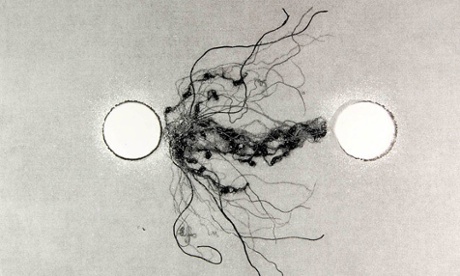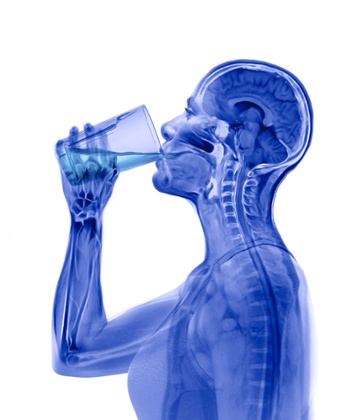The ordeal began for Thomas Orchard’s mother, Alison, as she strolled beside a river in Devon in October 2012. She took a call from her son’s social worker saying he had missed an appointment for a mental health assessment.
“I remember thinking: ‘Tom needs my help.’ I ran back home. There was this incredible knock on the door. It was two police officers. Their first words were: ‘We have some worrying news.’ They blue-lightedme into the hospital. I kept asking the police officers: ‘What’s happened?’ I thought he was dead.”
Orchard was not dead but unconscious. At first his family thought he had suffered a heart attack, though he was a physically fit young man. Gradually, as they kept vigil at his bedside over the next seven days, sketchy details emerged. He had been involved in a disturbance in Exeter city centre. He was taken to a police station and from there was rushed to hospital, gravely ill.
“It was very hard to get any information,” said Alison. “We didn’t know what had happened. I don’t think the medical team did either.” Orchard was put into a medically induced coma. “I remember doing things like getting his deodorant to give him a familiar smell,” said Alison. “We were talking to him constantly. But there came a time when it was obvious life was not possible, so the machines were turned off.”
Thomas’s sister, Jo, said they were baffled. “We had a lot of questions about why a 32-year-old healthy man would go into a police cell and come out essentially dead,” she said.
For four-and-a-half years now, the Orchard family – Alison, Thomas’s father, Ken, and his siblings, Jo and Jack – have fought to find out the truth of why he died. Now they believe they have an answer. “I’m completely certain that had it been picked up as a mental health crisis and taken to a place where that was understood, he would be alive,” Alison said.
The family were to discover that Orchard, who was being treated for paranoid schizophrenia, had had a mental breakdown and was arrested after approaching a passerby and beginning an argument. Police were called and he was pinned down in the street and restrained by his hands, legs and ankles.
At Heavitree police station in Exeter an emergency response belt (ERB), a heavy cloth device with handles most often used to secure prisoners around the body so that they can be carried, was held over his face. He was carried in the prone position to a cell, where he was searched while lying on his front, still masked by the ERB. The belt was removed and he was left alone, face down, in the cell. He suffered a cardiac arrest and brain damage. The ERB had been applied to his face for a total of five minutes and two seconds.
Orchard’s family were devastated when they found out what had happened to him. “It wasn’t dealt with appropriately,” said Alison. “I think they made assumptions that Tom was either drunk or on drugs or was an angry man. I know he was very frightened. That’s why he was acting as he was.”
Jo said: “Tom was really, really let down. It was clearly a medical crisis, not a criminal one.” His family believe Orchard’s confusion and fear would been exacerbated by the use of the ERB. “I think the [ERB] being used over the face is barbaric anyway,” said Jo. “If you add mental health crisis into that, it must be so, so scary.”
In their defence the officers made it clear they did not know Orchard had a mental health condition and thought they were dealing with an angry, aggressive man. They believed the force they used was proportional and lawful and pointed out that the ERB had been approved by Devon and Cornwall police for use as a bite or spit hood.
Orchard was raised in rural Devon. “As a child he was very physical,” said Alison. “Small, wiry, fit. He was a very free spirit. He was deeply sensitive.”
He struggled academically and began to suffer mental health problems. “He hit teenage years very badly,” his mother said. “He got into drugs and into petty crime associated with drugs. He was homeless for a while. He never settled in a job.”
On his 21st birthday Orchard was sectioned and, over the next decade, spent lengthy periods in hospital. There he found religion and, when he was judged fit enough to be treated in the community, was discharged. He had digs in Exeter and became a member of St Thomas’s church, where he acted as a part-time caretaker.
“He didn’t have any close friends except God,” said Alison. “He was very devout, very OCD-ish about saying the Lord’s prayer in exactly the same way. He loved crosses and candles.”
By the end of September 2012, his condition began to deteriorate. He stopped taking his medication, heard voices and had hallucinations. On the morning of 3 October, precisely at the time when he should have been arriving for the mental health assessment, he was in the city centre involved in the disturbance.
The officers involved in the arrest and detention clearly saw Orchard as violent. Their explanation for using the ERB was that he was threatening to bite.
Violence is not a trait his family recognise. “I had childhood spats with him but never in adult life have I seen him be violent,” said Jo. “The exact opposite. He would plant seeds and want to save the world.” His mother saw him get angry. “But, at heart, he was incredibly sensitive and gentle,” she said.
It was seven months before Orchard’s family got his body back for a funeral. “That was hugely difficult,” said Alison. “Tom became the property of the state.”
Almost two years after Orchard’s death – August 2014 – the family saw CCTV footage from the police station. “To see how they treated Tom, it was very deeply shocking,” said Alison. The worst part of the video for her is the section in which he is left alone in his cell and remains apparently motionless. “That’s the image that stays with me, that haunts me. It’s a deep, gut-wrenching, sickening feeling. It’s an achingly long time he is lying there and I am willing someone to go in.”
Watching the three officers on trial has been difficult. “I have a range of emotions,” said Alison. “From compassion, to disdain, to loathing.” The family remains angry at Devon and Cornwall police. “I think I have seen an arrogance and I think I’ve seen them not take this death seriously,” said Alison. “None of the officers involved were suspended until they were charged with manslaughter.”
The conclusion of the six-week trial, with three officers cleared of manslaughter, does not spell the end. Through the campaign group Inquest, the Orchards have spoken to other families who have lost loved ones in custody including relatives of Sean Rigg, a musician with schizophrenia who died at Brixton police station in south London after being held for eight minutes in a prone position.
Orchard’s mother and sister are contemplating a life of campaigning. Jo said: “This is a lifelong cause for us now. There are a lot of deaths in custody.” Alison said: “I’ve got to stop thinking it will be all right once this trial is over. I’ve got to accept that this is my purpose in life. It’s not the road I would have chosen in my life but I hope I can be there for anyone else who has to go through this.”
"He was really really let down": Thomas Orchard"s family speak out



